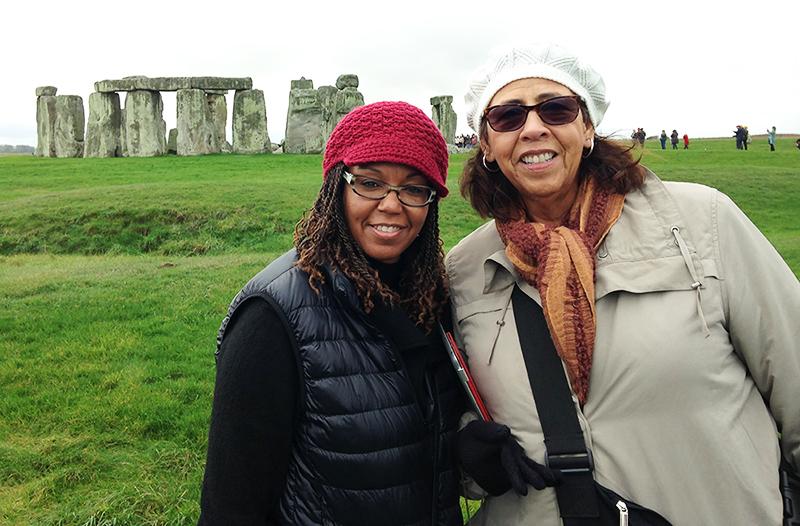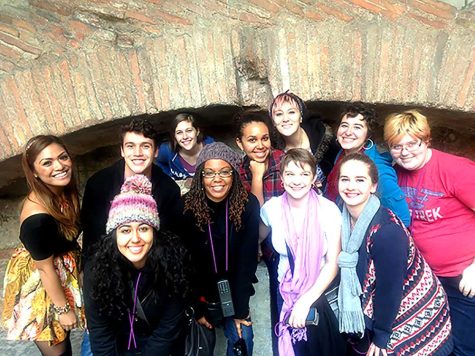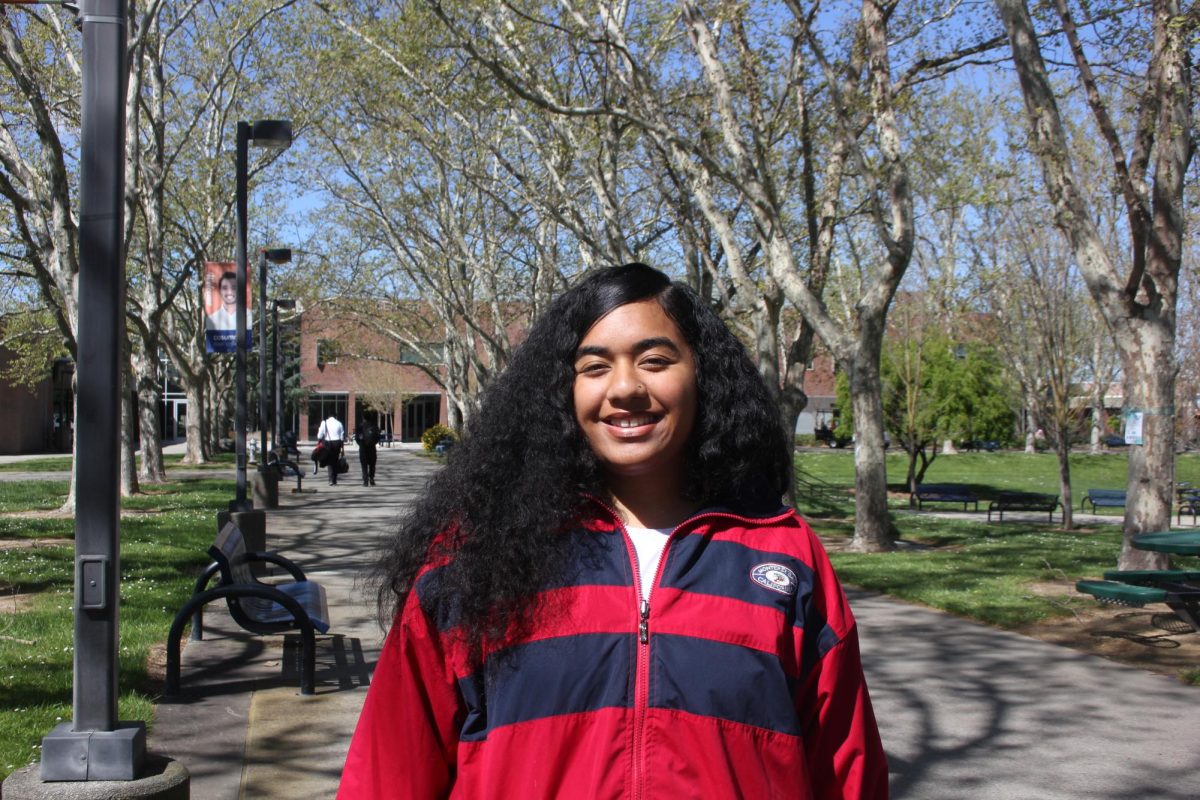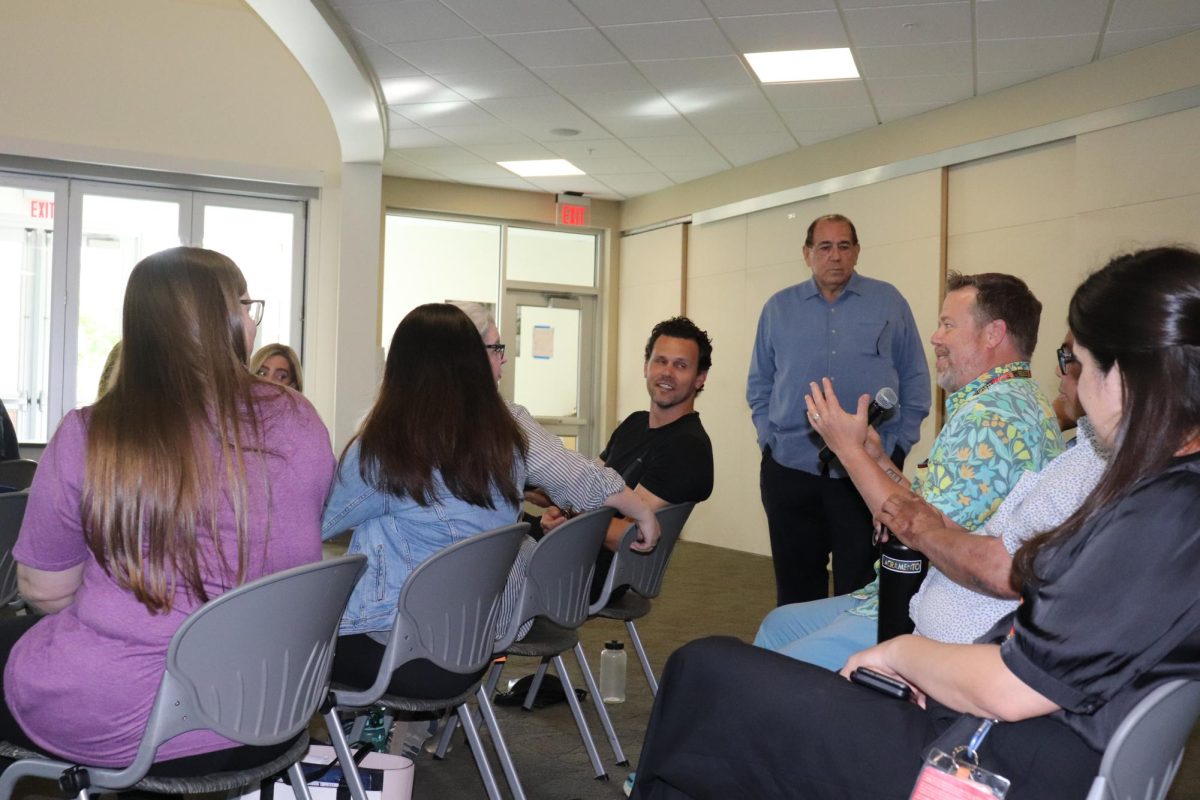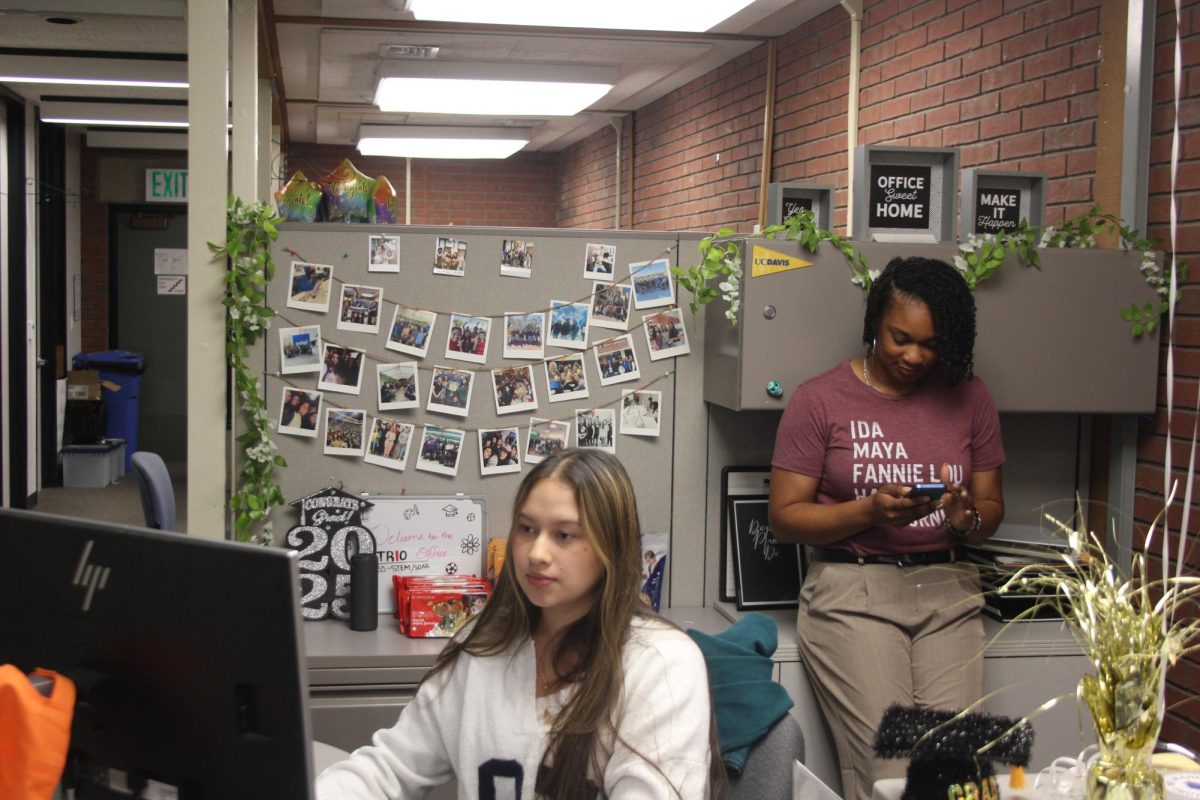Professor teaches abroad, expands student learning
Courtesy of Colette Harris-Mathews
Harris-Mathews (left) and professor Sondra Saterfield (right) from the College of San Mateo visit Stonehenge in Wiltshire, England as a part of the British Life and Culture class. Students had many opportunities to learn outside of the classroom by combining lectures with organized field trips.
April 1, 2014
It’s not everyday that a college professor has the opportunity to not only teach on more than one continent, but also to impact students on a global level.
Cosumnes River College Communication Studies Professor Colette Harris-Mathews had the opportunity to teach at the University of London in the United Kingdom in fall 2013 through the Los Rios Study Abroad program.
Harris-Mathews, along with three other professors, taught across the pond through the Northern California Consortium, who partners with the American Institute for Foreign Studies, she said.
“The experience was enriching for me professionally and personally,” Harris-Mathews said via e-mail. “I most enjoyed the cultural experience of traveling to work via the tube and the opportunity to teach without walls. Students were amazed by their opportunities to learn outside the classroom.”
Whether educating students in America or the UK, teaching has always been a big part of Harris-Mathews’s life.
“Teaching was always the thing I liked to do. Prior to teaching, I worked in the public sector as a manager. One of the things I liked to do was teach people how to do their job better,” Harris-Mathews said.
For Harris-Mathews, she said being an educator is much more than simply standing in front of a classroom lecturing or assigning pages out of a textbook, regardless of the continent she’s teaching on. These aspects are necessary to successful teaching, but she said she believes teaching is a growth process in which teachers act as catalysts to help students arrive to “their own truth.”
“You need to get to the point where people really grow, they arrive to their own truth. The whole purpose of college is you’re searching for your own truths,” Harris-Mathews said. “My philosophy to teaching is that students learn through doing. I believe that all students can learn, [but] they have to be open to the education process.”
Harris-Mathews’s core teaching beliefs have proven beneficial, according to her students.
“She makes [the public speaking] really comfortable, like the way she acknowledges everyone. She’s really easy to get along with,” said Mike Duran, 21, a physics major, who is currently taking Professor Harris-Mathews’s Communications 301 introduction to public speaking course.
Sandra Gomez, 21, a psychology major who is also in Harris-Mathews’s Communications 301 course, agrees with Duran.
“[The class] is a good environment,” Gomez said. “She gives a lot of time for students to get to know each other and feel comfortable. If you need help, she’s always available.”
In addition to ensuring her students are in a comfortable classroom setting, 18-year-old psychology major Mindy Ou said Harris-Matthews also does what she can to help her students reach success.
“She’s really informative, and she helps you reach your goals and always answers questions,” Ou said. “She’s [also] funny and nice.”
Teaching is a method through which Harris-Matthews said she hopes to prepare students for their future. Not just their educational futures but also their futures in prospective careers, and as thinkers.
“I try to help students see the connection of theory and application. I believe I am preparing students to be intellectually curious, but also successful in today’s workforce. There should be a balance of intellectualism and practical skills relevant for tomorrow’s workforce,” Harris-Mathews said via e-mail.
Students that haven’t already taken one of Harris-Mathews’s communication studies courses will have the opportunity to, as she said there currently are no plans to end her teaching career anytime in the foreseeable future.
“I plan to teach as long as I feel I am making a difference in the classroom and contributing to higher education,” she says. “I am a lifelong learner, so I believe I will always remain connected to education.”

